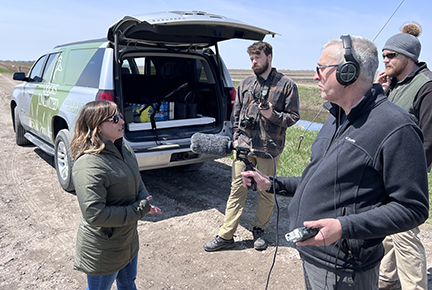Newsroom
News and stories about our efforts to help local communities and create opportunities for people around the world

Media Experts List
Ducks Unlimited’s conservation staff can speak with authority on topics related to wetlands impact and benefits, water quality, waterfowl science and large-scale conservation efforts.
